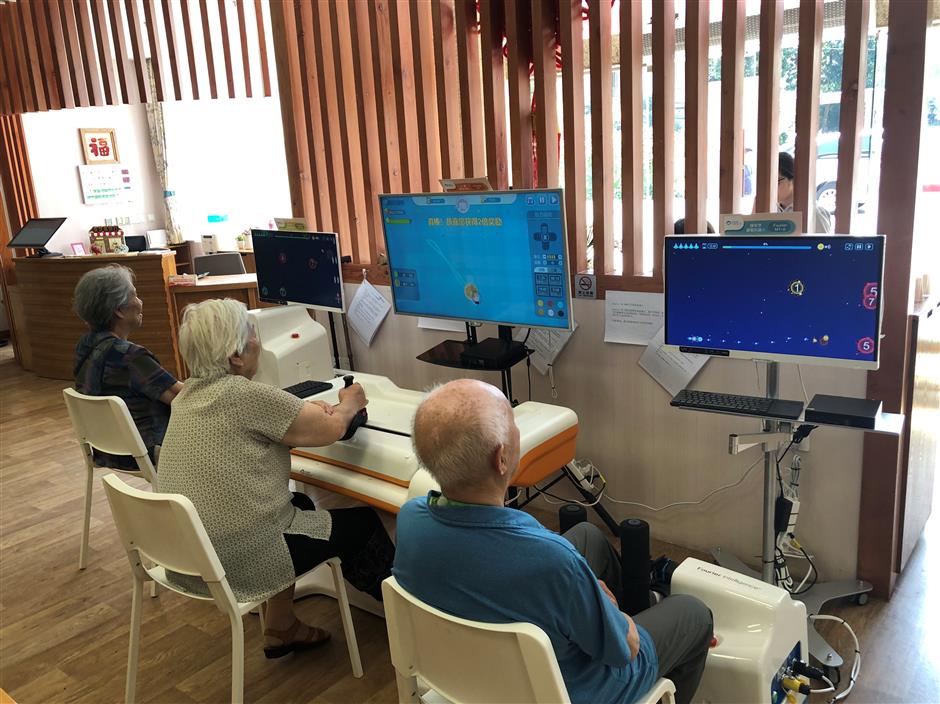Fourier Intelligence promises a golden future for China's 'silver' generation

Residents use Fourier robotics at a local nursing home to aid recovery of upper and lower limbs and delay the onset of aging-related diseases like Parkinson's and dementia.
With AI playing an increasing role in the senior care industry, the upcoming World Artificial Intelligence Conference is an opportunity for tech companies to explore the "silver" economy, including Shanghai's own robotics startup, Fourier Intelligence.
During the event from August 29 till 31, the company will demonstrate its rehabilitation robots at a community nursing home on Rushan Road in the Lujiazui Financial Zone of Pudong New Area.
The company's products include a wearable exoskeleton, robots aimed at upper and lower limb rehabilitation and smaller, mass-market gadgets conducive to the recovery of joints like ankles and wrists.
On the eve of the WAIC, Alex Gu, founder and chief executive of Fourier Intelligence, told Shanghai Daily that AI is not just hype, but "can solve real-world issues."
Fourier's products will remain at the nursing home until after the China International Import Expo, which closes on November 10.
"We'll leave our gizmos there so that people who live nearby can drop in to see firsthand how they work," said Gu, 38, who was recognized last year as one of the city's 10 outstanding young entrepreneurs.
Adoption of rehabilitation robots, especially in senior care, is a broad trend. China is rapidly graying, with less than a quarter of one billion people aged 60 or more, just under a fifth of the total population.
Changing demographics require more efficient, flexible rehab services for those who going through home-based training or receiving therapy at their local community care center.
Despite a rising crop of community care centers across China, most lack the staff or facilities to meet the growing demand. There is reportedly a shortfall of around 300,000 experienced therapists in China, and that's where Fourier and others come in to play, said Gu. His company's vision is to use robotics not just in rehabilitation, but also for reducing the workload and cost of understaffed medical institutions.
Headquartered in Zhangjiang High-Tech Park, the company's designs employ immersive gamification and other reward-based approaches with the aim of making the normally tedious process a little more beguiling. The robots also provide an assistive force to help complete tasks should the user's muscle strength prove to be inadequate.
Fourier's products have an intelligent decision-making system that customizes training plans to the individual needs of each user, but they also analyze the data from each session and submit a report to the doctor or therapist overseeing the rehab.
"In the past, it was all down to the therapist. Going forward, rehab robots will perhaps eventually take over from them completely," said Gu.
His company's next goal is to deploy his robot army in rehab clinics and nursing homes around the world. A handful of therapists, aided by their robotic "helpers," will be able to explore ways to enhance the interactions between doctors and patients and increase the efficiency of treatment.
"With our products, only one human therapist is needed to provide a full range of services at a community care center," Gu said. He added that the numerous such facilities popping up all over the country offer an ideal opportunity for Gu's dream of affordable, effective care for all to become a reality.
















